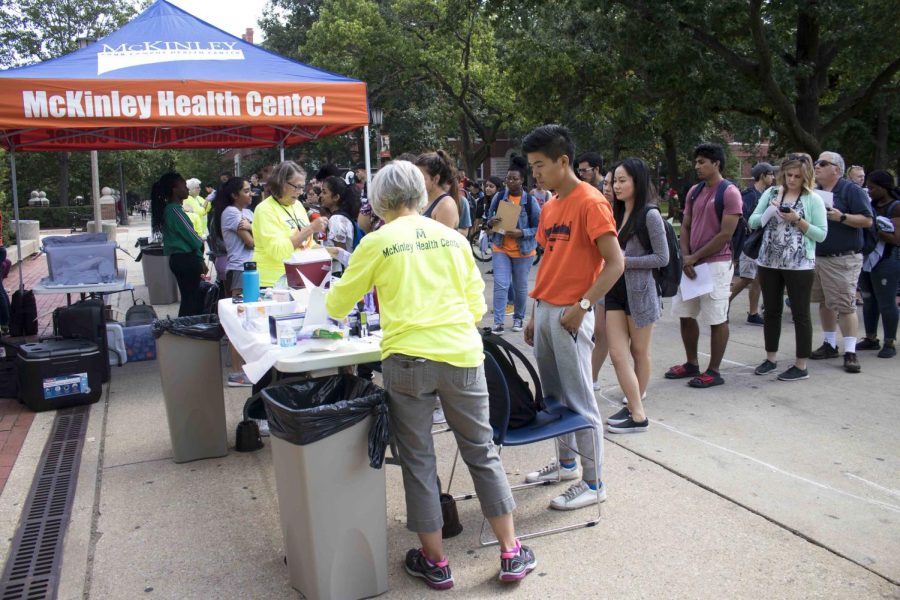Health experts urge public to get flu shots
October 21, 2021
As the U.S. is approaching flu season, health experts are recommending that the public get flu shots to avoid overwhelming hospitals in the midst of COVID-19.
The spread process of influenza and COVID-19 are similar because they are both respiratory viruses that spread through the air, according to an email from Rebecca Lee Smith, associate professor in AHS.
Smith said that while this year’s flu was nothing special compared to previous years, she worries that the health care system is overloaded with COVID-19, which is dangerous for severe flu cases. If health care workers are overworked and exhausted, patients with severe flu symptoms will not have access to the best care.
Christopher Byron Brooke, assistant professor in LAS, said in an email that as a public health threat, it is not possible to determine which strain of influenza will dominate.
“Last year, the measures that we took to limit SARS-COV-2 spread had the added benefit of massively reducing flu case numbers,” Brooke said. “It remains to be seen if the same thing will happen this year.”
Get The Daily Illini in your inbox!
As far as influenza vaccines are concerned, Smith suggested all teachers, students and staff in the school who can get the flu vaccine should be vaccinated because it does well in preventing death.
“Vaccination or infection with flu will generate immune cells that can produce antibodies against flu for decades,” Brooke said.
Brooke said vaccines can stimulate antibodies to protect people from infection.
From a public health perspective, “in normal years, seasonal influenza infections cause tens of thousands of additional deaths and tens of billions of dollars in economic costs every year in the U.S. alone,” Brooke said.
Smith said some of the measures taken to prevent influenza are similar to those taken to prevent COVID-19: Try not to be in crowded rooms, remember to wear masks when flu cases rise, properly ventilate and stay at home when sick.
Brooke predicts that the worst flu result is when new strains are transferred from animals to humans, leading to a pandemic.
“This happens every 10-30 years,” Brooke said. “The worst one on record in 1918 killed hundreds of thousands of people in the U.S. As for seasonal flu, in really bad years you can have (approximately) 50k deaths in the U.S..”
Yuki Han, first-year graduate student and research assistant at Carle Cancer Center, decided to get the flu shot. She said everyone who works at Carle Cancer Center is required to get the flu vaccination before Nov. 1.
“I think it is good and meaningful to get a flu shot, especially in this special period of COVID-19,” Han said. “It would scare me if I got the flu but was mistaken for COVID-19. That’s one of the reasons I decided to get vaccinated.”
She said the vaccine would make her feel a little less at risk of infection, so she wouldn’t worry if she came into contact with an unvaccinated person.







